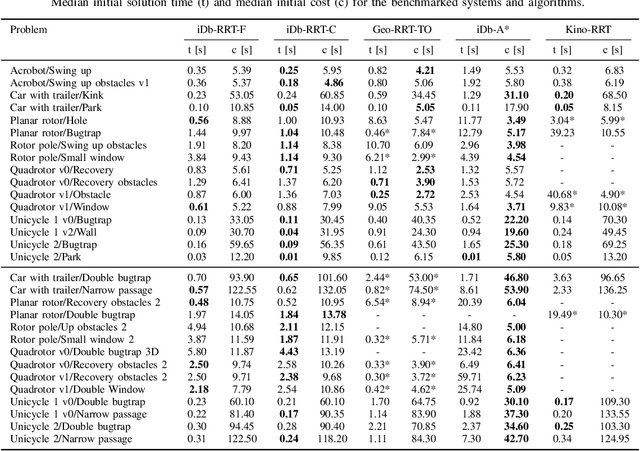iDb-RRT: Sampling-based Kinodynamic Motion Planning with Motion Primitives and Trajectory Optimization
Paper and Code
Mar 16, 2024



Rapidly-exploring Random Trees (RRT) and its variations have emerged as a robust and efficient tool for finding collision-free paths in robotic systems. However, adding dynamic constraints makes the motion planning problem significantly harder, as it requires solving two-value boundary problems (computationally expensive) or propagating random control inputs (uninformative). Alternatively, Iterative Discontinuity Bounded A* (iDb-A*), introduced in our previous study, combines search and optimization iteratively. The search step connects short trajectories (motion primitives) while allowing a bounded discontinuity between the motion primitives, which is later repaired in the trajectory optimization step. Building upon these foundations, in this paper, we present iDb-RRT, a sampling-based kinodynamic motion planning algorithm that combines motion primitives and trajectory optimization within the RRT framework. iDb-RRT is probabilistically complete and can be implemented in forward or bidirectional mode. We have tested our algorithm across a benchmark suite comprising 30 problems, spanning 8 different systems, and shown that iDb-RRT can find solutions up to 10x faster than previous methods, especially in complex scenarios that require long trajectories or involve navigating through narrow passages.
 Add to Chrome
Add to Chrome Add to Firefox
Add to Firefox Add to Edge
Add to Edge